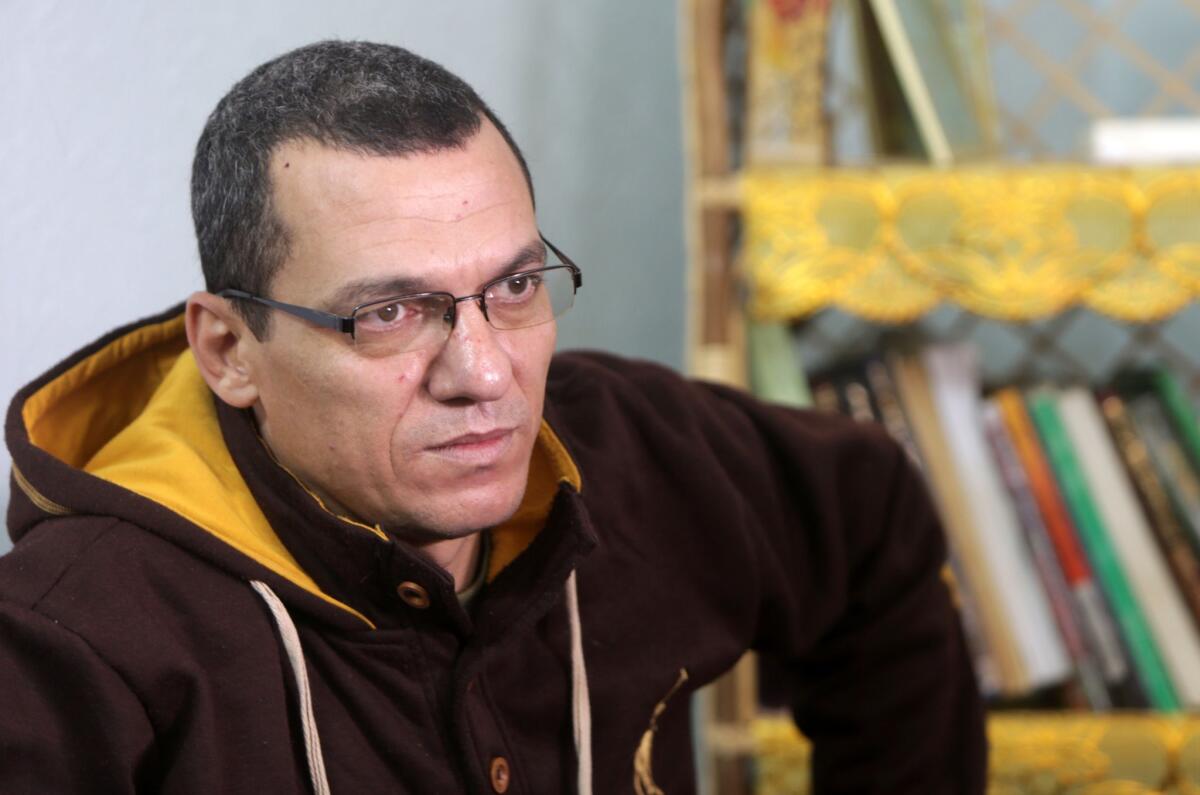Editorial: After arrest of a Palestinian journalist, a crucial voice is silenced in Gaza

Palestinian journalist Ayman al-Aloul answers questions during an interview on Jan. 13 at his family home in Gaza City.
Like Winston Smith after his “re-education” in “1984,” or Randle McMurphy after his lobotomy in “One Flew Over the Cuckoo’s Nest,” Ayman al-Aloul seems to have been vanquished by the authorities.
Aloul is a journalist in the Gaza Strip. As editor of the Arab Now agency, he wrote about the quality of life in that depressing, overcrowded sliver of oceanfront territory, and about the failings of the Hamas government that runs it. He has posted photos of Gazans scrounging for food in garbage containers and has blamed Hamas for power blackouts. In a society in which such internal criticism is rare, he stood out.
So much so that on Jan. 3, Aloul was arrested. When he was released nine days later, he announced that he won’t be writing about the government’s failings anymore. In an interview with the Associated Press, he described being beaten in jail and sent to a room known as “the bus,” where he was bound painfully to a tiny chair for an entire day. He was repeatedly slapped in the face during his incarceration, he said.
“I’ve decided not to talk about the general situation anymore,” he said. “The experience I went through was very difficult.”
In the future, Aloul told the AP, he will focus on more anodyne topics like sports, food, literature and fashion.
The mistreatment of journalists in the Arab world is nothing new, of course. For years, Hamas in Gaza and the Palestinian Authority in the West Bank have harassed, detained and beaten them, shut down their publications and confiscated their equipment, according to Human Rights Watch.
Aloul’s story isn’t the most egregious example of media suppression in the world. But it is particularly sad — heartbreaking, really — to see a journalist acknowledge so frankly that he has been defeated. In Gaza — where Palestinians live under a punishing Israeli blockade, unemployment is running at 43%, poverty is relentless, war has become familiar, and democracy simply doesn’t exist — people who write honestly and independently are badly needed but in short supply. Incidents like this one only discourage others from filling that role.
Follow the Opinion section on Twitter @latimesopinion and Facebook
More to Read
A cure for the common opinion
Get thought-provoking perspectives with our weekly newsletter.
You may occasionally receive promotional content from the Los Angeles Times.










